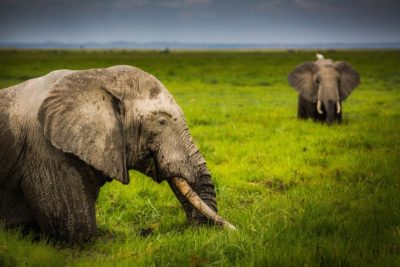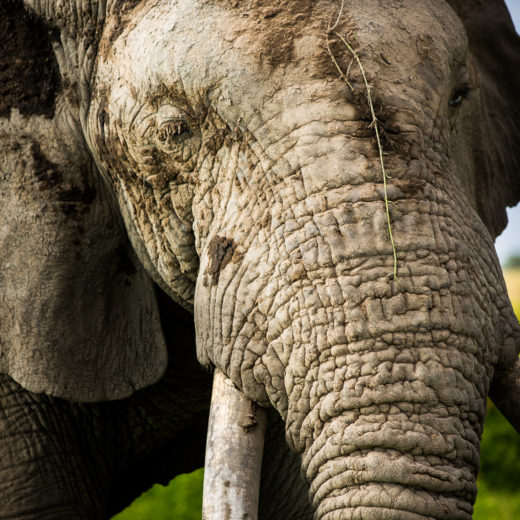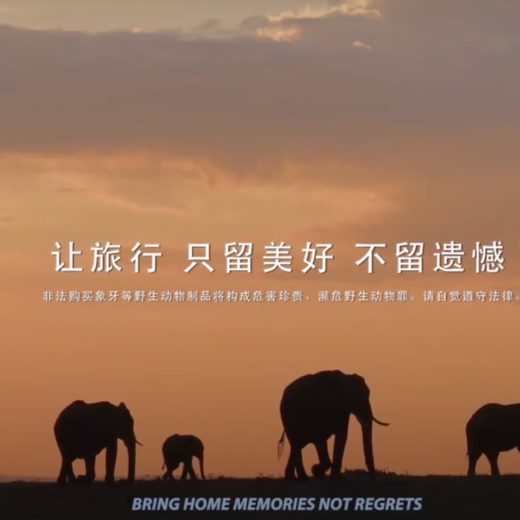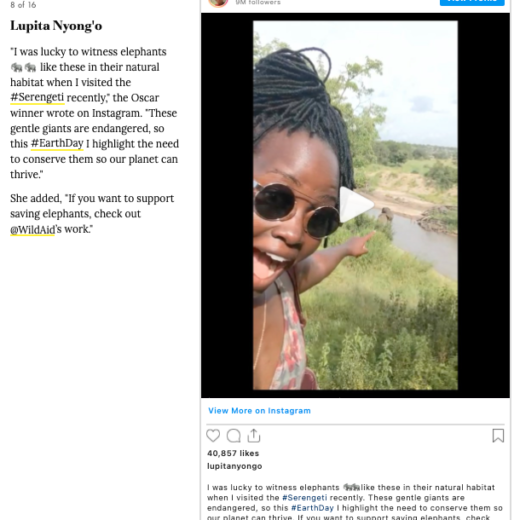
WASHINGTON (Sept. 25, 2015) — In a historic accord to save Africa’s elephants from out-of-control poaching, President Barack Obama and President Xi Jinping agreed Friday to end commercial ivory sales in the United States and China.
The announcement marks the first public commitment by President Xi to end ivory sales in China, the world’s largest market, and follows a pledge made by Chinese officials in May to phase out the domestic trade. It also puts heavy pressure on Hong Kong SAR, a global hub for commercial ivory, to ban its legal trade — one that has provided cover for smuggling and illicit sales of ivory from African elephants poached in recent years. A recent survey found that over 90% of ivory sold in Hong Kong SAR was being smuggled into mainland China.
A White House fact sheet released Friday confirms the agreement, full text below:
Wildlife Trafficking: The United States and China, recognizing the importance and urgency of combating wildlife trafficking, commit to take positive measures to address this global challenge. The United States and China commit to enact nearly complete bans on ivory import and export, including significant and timely restrictions on the import of ivory as hunting trophies, and to take significant and timely steps to halt the domestic commercial trade of ivory. The two sides decided to further cooperate in joint training, technical exchanges, information sharing, and public education on combating wildlife trafficking, and enhance international law enforcement cooperation in this field. The United States and China decided to cooperate with other nations in a comprehensive effort to combat wildlife trafficking.
“Today’s announcement is the greatest single step that could be taken to reduce poaching for elephants. Legal ivory trade has always been used as a cover to launder poached ivory, and when it was authorized by the previous administration in China in 2009, poaching escalated dramatically in Africa,” said WildAid CEO Peter Knights. “The Chinese government has supported our ivory demand reduction campaign, led by Yao Ming and Li Bingbing, and has provided support for conservation efforts in Tanzania and other African countries. We thank both Presidents for their personal support for elephant conservation and call upon Hong Kong to join China and the US in consigning the ivory trade to the trash can of history.”


The international commercial ivory trade was banned in 1989, following a decade of out-of-control poaching that decimated African elephant populations, from 1.3 million in 1979 to an estimated 609,000 by the late 1980s. As a result of the ban, poaching decreased significantly and ivory prices plummeted. But “one-off” sales of ivory in the late 2000s and the ongoing legal domestic trade in places such as Hong Kong, China, Thailand, Vietnam and the US have allowed for the laundering of illegal ivory shipments from recently poached elephants.
The good news: An ivory sales ban has wide support among the Chinese people. A November 2014 survey by WildAid, African Wildlife Foundation and Save The Elephants in Beijing, Shanghai and Guangzhou found that 95% of respondents said that the government should impose an ivory sales ban, and that awareness of ivory poaching had increased by 50% since 2012.
This follows a 50-70% reduction in consumption of shark fin following WildAid’s campaign and President Xi’s ban on shark fin at state banquets. The campaigns received hundreds of millions of dollars of media space donated by Chinese state and private media. WildAid’s ivory campaign was supported by African Wildlife Foundation and Save the Elephants, and featured Chinese celebrities such as Yao Ming (shown below), actress Li Bingbing and piano virtuoso Lang Lang, as well as Prince William, David Beckham, Lupita Nyong’o and the cast of AMC’s The Walking Dead.


Stay in touch and get the latest WildAid updates.
SIGN UPAbout WildAid
WildAid is a non-profit organization with a mission to protect wildlife from illegal trade and other imminent threats. While most wildlife conservation groups focus on protecting animals from poaching, WildAid primarily works to reduce global consumption of wildlife products such as elephant ivory, rhino horn and shark fin soup. With an unrivaled portfolio of celebrity ambassadors and a global network of media partners, WildAid leverages more than $308 million in annual pro-bono media support with a simple message: When the Buying Stops, the Killing Can Too.
Journalists on deadline may email communications@wildaid.org


